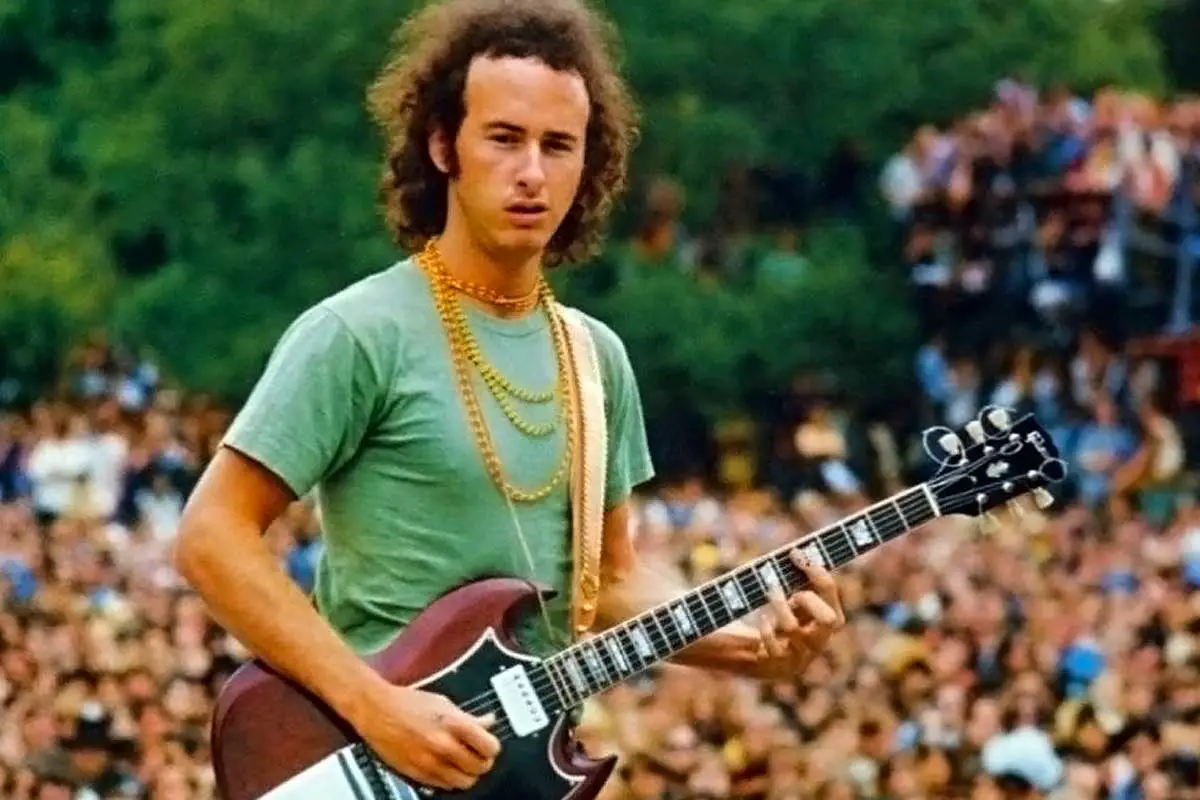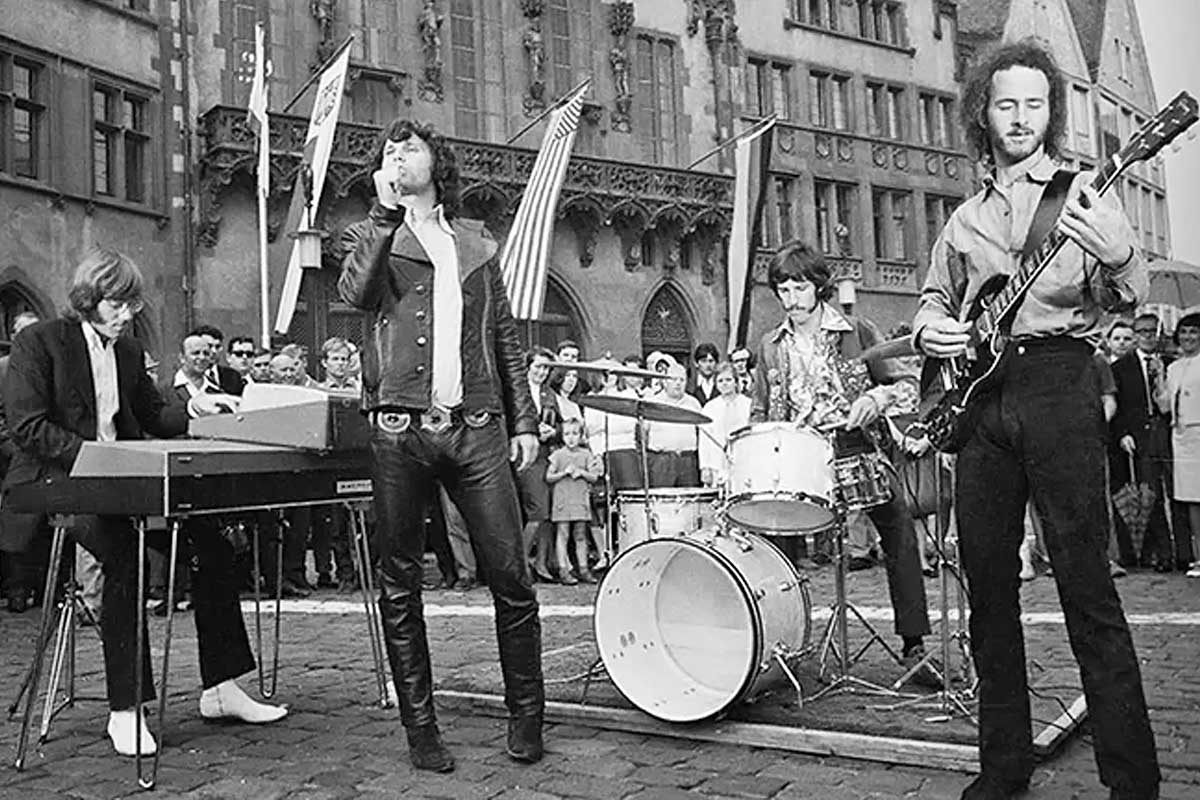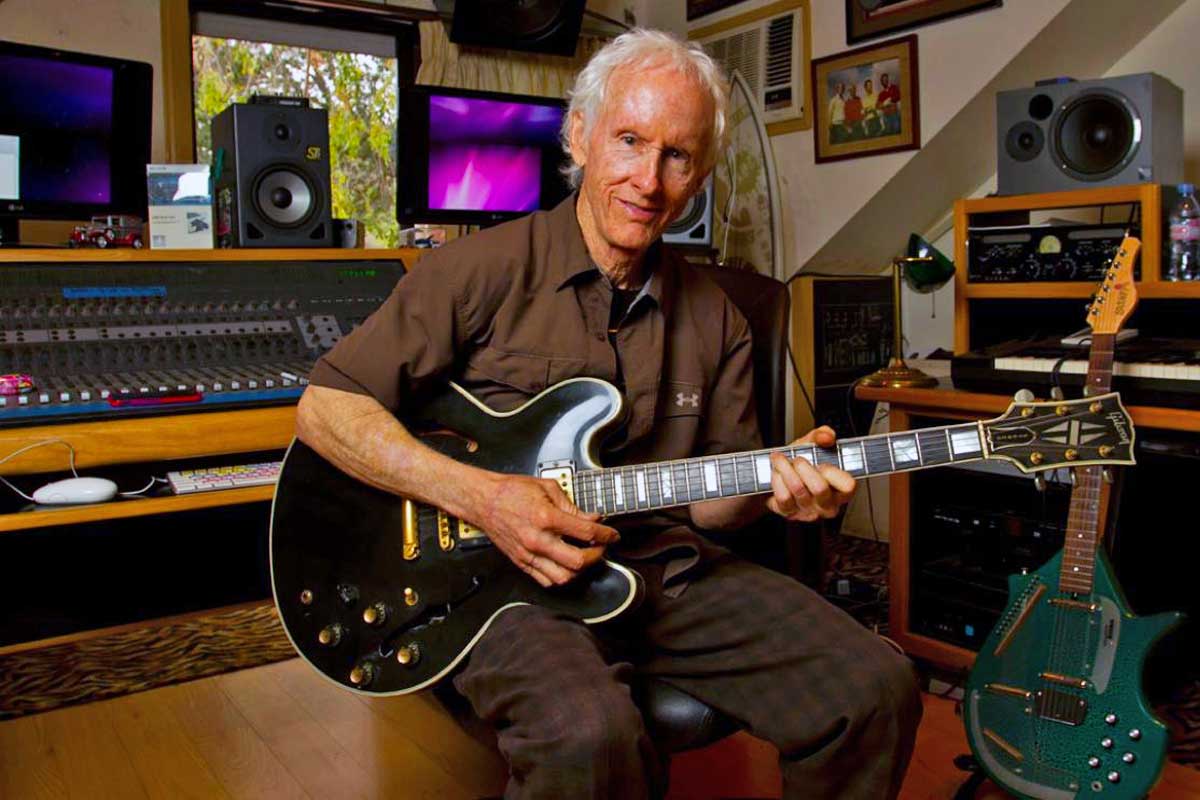Robby Krieger stands as an emblematic figure in the history of rock music, best known for his role as the guitarist of the legendary band The Doors. His unique approach to the electric guitar, incorporating flamenco and jazz influences into his playing, contributed significantly to the distinctive and enduring sound of the band. During his time with The Doors, Krieger penned some of the group’s most iconic hits, including “Light My Fire,” highlighting his talent for songwriting as well as his instrumental prowess.
After the untimely death of The Doors’ charismatic frontman Jim Morrison, Krieger continued to be an active musician. He launched a solo career and collaborated with other artists, including forming the Robby Krieger Band, which allowed him to explore different musical dimensions and styles. His commitment to music extends beyond performance; he has also contributed to various charitable causes, using his art to support and inspire others.
Krieger’s impact on the world of music has been recognized through numerous accolades and his induction into the Rock and Roll Hall of Fame with The Doors. His innovative guitar techniques and exploratory compositions have influenced generations of guitarists, solidifying his place among the greats in rock music history. His continued passion for music and experimentation ensures that Robby Krieger’s legacy as an influential artist will endure.

Early Life and Influences
Robby Krieger’s formative years were marked by a blend of musical influences and a supportive family environment that laid the foundation for his future career. This section explores the profound impact of his upbringing.
Family and Childhood
Growing up in post-World War II Los Angeles, Robby Krieger was immersed in a melting pot of musical influences that the city’s burgeoning scene offered. From the blossoming of jazz and the birth of rock ‘n’ roll to the experimental sounds of the 1960s, Krieger’s environment was ripe for artistic exploration. This diversity of sounds and the support of his family played a significant role in shaping his eclectic musical style, which would later become a hallmark of The Doors’ revolutionary sound.
Musical Roots and Inspirations
From a young age, Krieger was captivated by various musical genres, ranging from the blues to flamenco, jazz, and folk. His early exposure to these styles is evident in the unique sound he cultivated. The improvisational elements of jazz, the soulful resonance of the blues, and the intricate rhythms of flamenco notably shaped his approach to guitar playing.
Education and Early Bands
Krieger pursued higher education at the University of California, Los Angeles (UCLA), where he further expanded his musical horizons. During his time at UCLA, he explored the local music scene and played in various early bands. These experiences honed his skills and set the stage for his later success as a groundbreaking musician.
The Doors Formation and Achievements
The Doors, an iconic rock band, formed in the mid-1960s in Los Angeles, sparked a revolution in the rock scene with its distinctive sound and charismatic performances. Establishing themselves with earnest lyrics and an enigmatic frontman, they have left a lasting legacy highlighted by chart-topping albums and timeless songs.

Band Members
- Jim Morrison: Charismatic lead vocalist and lyricist.
- Ray Manzarek: Keyboardist known for his distinctive organ playing.
- Robby Krieger: Guitarist who wrote or co-wrote many of the band’s hit songs.
- John Densmore: Drummer bringing a jazz influence to the band’s music.
Rise to Fame
The Doors achieved national prominence after the release of their self-titled debut album in 1967. It featured the enduring hit “Light My Fire“, which showcased Krieger’s songwriting prowess and became a number one single on the Billboard chart. The group’s follow-up singles, including “Love Me Two Times” and “Touch Me“, further solidified their standing as a major force in rock music.
Notable Albums
- The Doors (1967): The debut album introducing The Doors’ psychedelic sound.
- Strange Days (1967): Continued their exploration into darker and more surreal territory.
- Morrison Hotel (1970): A return to their blues roots, fortifying their rock credentials.
- L.A. Woman (1971): The final album with Morrison, featuring a raw and bluesy sound.
Musical Style and Techniques
Robby Krieger’s musical craftsmanship is a distinctive blend of innate talent and diverse influences, which helped to create the unique sound of The Doors. This section explores Krieger’s guitar playing style, the genres that influenced his music, and his significant songwriting contributions.
Guitar Playing Style
Robby Krieger’s approach to the guitar is a testament to the power of self-education and the blending of diverse musical traditions. Without formal training, he cultivated a unique style that merged various techniques, prominently featuring fingerpicking and bottleneck slide, which were not commonly associated with rock music at the time.
His interest in flamenco guitar, with its complex, fast-paced fingerwork, translated into his playing with The Doors, adding a distinctive texture to the band’s sound. This integration of flamenco’s percussive elements into rock music was groundbreaking and showcased Krieger’s innovative spirit.
Krieger’s solos are a high point in The Doors’ discography, offering a window into his ability to fuse melodic structure with spontaneous creativity. The iconic solo in “Light My Fire” is a prime example of his technique, where he navigates through scales and modes with a fluidity that gives the impression of improvisation, yet remains melodically grounded.
This balance between planned musicality and improvisational freedom is a hallmark of Krieger’s style, earning him a place among rock’s most influential guitarists. His hybrid playing not only contributed to the enduring success of The Doors but also inspired generations of guitarists to explore the instrument’s possibilities beyond traditional genre constraints.
Influential Genres
Krieger’s approach to music was heavily influenced by a variety of genres. He drew inspiration from the soulful expressiveness of the blues, the complexity of jazz, and the fiery passion of flamenco. These influences are evident in songs such as “Spanish Caravan,” where the flamenco vibe is unmistakable, and “Roadhouse Blues,” which embodies the gritty, raw energy of blues-infused rock.

Songwriting Contributions
In terms of songwriting contributions, Robby Krieger played a pivotal role in The Doors’ catalog, penning or co-writing many of the band’s hits. His writing process integrated his eclectic musical influences into tightly structured songs with memorable hooks. Krieger’s input ranges from the moody “Riders on the Storm” to the spirited “Love Her Madly.” His ability to craft both gripping narratives and evocative atmospheres within his songs contributed significantly to The Doors’ enduring legacy.
Solo Career and Collaborations
After his tenure with The Doors, Robby Krieger’s foray into solo projects and musical collaborations has been marked by both personal expression and partnership. Notably, these endeavors have allowed him to showcase his versatility and innovation in music.

Albums and Tours
- Albums: Krieger’s solo career is highlighted by albums that exhibit his range as a guitarist and a composer. Notable among his solo works is the album “Versions”, where he put a jazz-infused spin on various rock and pop classics.
- Tours: Alongside recording, Krieger has also been active with touring, bringing both his classic hits and experimental sounds to live audiences, reflecting his enduring presence in the music world.
Musical Partnerships
- Arthur Barrow:
- Collaborations: Robby Krieger’s collaborations with musicians like bassist and composer Arthur Barrow have been a salient feature of his later career. Barrow’s influence is evident in the production style and compositions where he has been involved.
- The Ritual Begins at Sundown: One of their notable collaborations is on Krieger’s album “The Ritual Begins at Sundown,” which showcases a strong jazz-rock fusion and the intricate interplay between musicians.
- Tommy Mars:
- Touring and Recording: The talent of keyboardist Tommy Mars has also intermingled with Krieger’s work. Mars, known for his versatility, has not only toured with Krieger but has also been a part of recording sessions, adding layers to the sonic landscape of Krieger’s music.
Collectively, Robby Krieger’s work in his solo career and partnerships underline his continuous evolution as an artist and his capacity to collaborate successfully with an array of talented musicians.
Discography and Publications
Robby Krieger’s contributions to music are encapsulated in his extensive work with The Doors as well as his later forays into solo projects. His discography includes some of the most enduring hits of the rock genre, and his publications offer insightful perspectives into his life and times in one of America’s most iconic bands.
The Doors Discography
- Albums
Year Album Title Notable Songs 1967 The Doors “Light My Fire” 1967 Strange Days 1968 Waiting for the Sun 1969 The Soft Parade “Touch Me”, “Love Her Madly” 1970 Morrison Hotel 1971 L.A. Woman - Hit Singles: “Light My Fire,” which Krieger wrote, catapulted The Doors to fame, becoming one of their signature songs. “Love Her Madly,” another hit penned by Krieger, showcased his versatile songwriting skills during the later phase of the band’s career.
Solo Projects
- Albums
Year Album Title Highlights 1977 Robby Krieger & Friends 1982 Versions 1989 No Habla Instrumental project 2010 Singularity - Publications: In the book “Set the Night on Fire: Living, Dying, and Playing Guitar with The Doors,” Krieger reflects on his experiences as part of The Doors, providing a first-hand account of the band’s tumultuous journey.
Robby Krieger’s impact on rock music is indelible, evidenced by the enduring popularity of The Doors’ songs and the continued interest in his individual pursuits as a musician and author.
Controversies and Challenges
Robby Krieger’s career has encountered various hurdles, notably legal tussles and disputes with bandmates, and fluctuating public perception. These challenges have tested his resilience and adaptability as a prolific artist.

Legal and Band Disputes
During their tenure, The Doors encountered internal friction, particularly after the death of lead singer Jim Morrison. Disputes arose over the direction of the band and the use of the band’s name. The release of Other Voices in the absence of Morrison significantly impacted band dynamics. Legal disputes flared between Krieger and his bandmates when the group Doors of the 21st Century formed with Ian Astbury as the lead singer. The Doors‘ legacy was a central point of contention, with concerns over the rightful use of the band’s name and legacy in subsequent endeavors.
- Legal Actions: Krieger and drummer John Densmore engaged in legal battles over the use of the band’s name.
- Bandmate Relationships: Creative differences and decisions concerning tours and recordings led to strained relationships among surviving members.
Public Perception
Krieger’s public image has seen highs and lows, influenced by both his tenure with The Doors and his solo work. The audience’s reaction to The Doors’ shift in sound post-Morrison was mixed, presenting a significant challenge to the band’s relevance and Krieger’s standing as a prominent guitarist.
- Shift in Sound: The transformation in musical direction with albums like Other Voices prompted debate among critics and fans.
- Solo Career Impact: Krieger’s solo ventures have been subject to scrutiny, as he sought to uphold his reputation while exploring new artistic territories.
Listed above are the highlighted controversies and challenges, covering the specified entities within the provided framework of tone and perspective.
Influence on Popular Culture
Robby Krieger’s contributions to music have left an indelible mark on popular culture through various mediums, including biographies, documentaries, and continued references in media.

Biographies and Documentaries
The stories of Robby Krieger’s artistic journey and the behind-the-scenes dynamics of The Doors have been detailed in his own memoir, “Set the Night on Fire,” where he shares personal anecdotes and reflections on his experiences with the band (Goodreads).
Documentaries like “The Doors – Total Rock Review” give fans a comprehensive look at the band’s formation, rise to fame, and the collective contributions of its members, including Krieger’s innovative guitar techniques and his role in crafting some of their most memorable songs (YouTube). These works provide an invaluable perspective on Krieger’s musical legacy and the enduring influence of The Doors on rock music.
Continued Relevance
Robby Krieger’s innovative guitar work continues to resonate with new generations of musicians and fans, earning him a revered spot in the pantheon of rock guitarists. His nickname, “The Lizard King,” sometimes used interchangeably with Jim Morrison’s, reflects the intertwined legacies of The Doors’ members.
Rolling Stone magazine, a longstanding authority in music journalism, frequently revisits Krieger’s contributions to The Doors, reinforcing the band’s continued relevance and his individual impact on music history (Rolling Stone).
Interviews
Robby Krieger’s interviews are rich with stories that peel back the curtain on The Doors’ creative process, such as the posthumous collaboration on “An American Prayer,” where the band set Jim Morrison’s previously recorded poetry to music. He provides fans with intimate details of the recording sessions and the emotional experience of revisiting Morrison’s words years after his passing.
These candid conversations, such as his discussion in Esquire, not only shed light on his personal evolution as an artist but also contribute to the understanding of The Doors’ enduring mystique and the making of their final album (Esquire).
Music in Media
The enduring appeal of Robby Krieger’s music is evident in the frequent use of The Doors’ songs in various forms of media, with “Love Me Two Times” being a particularly popular choice for filmmakers and TV producers looking to evoke the spirit of the 1960s and 1970s.
This track, along with other classics, has found its way into the soundtracks of movies and television series, underscoring the timelessness of Krieger’s work and its ability to connect with audiences across different eras. The incorporation of The Doors’ music in contemporary media not only pays homage to the band’s impact but also introduces their sound to new listeners, further cementing Krieger’s place in the annals of rock history (What-Song).
Rock Legacy
Oliver Stone’s 1991 film “The Doors” played a significant role in rekindling interest in the band and introducing their story to audiences who may not have been alive during the band’s heyday.
By dramatizing the life of Jim Morrison and the band’s journey, including Robby Krieger’s role as a guitarist and songwriter, the movie helped to immortalize their contributions to rock music and popular culture. The biopic, which features Val Kilmer in the role of Morrison, serves as a testament to The Doors’ lasting legacy and Krieger’s indelible imprint on the rock landscape (IMDb).
